George Osborne says UK can get 'best of both worlds' from EU talks
- Published
- comments
In full: Osborne EU interview with Laura Kuenssberg
George Osborne has insisted Britain can get the "best of both worlds" out of its EU renegotiation, in an interview with the BBC's Laura Kuenssberg.
He said the UK could get the benefits of the single market but not the "burdens" of bailing out the eurozone.
The chancellor is in Berlin to set out the UK's economic demands ahead of a planned in/out referendum.
German leader Angela Merkel said Britain's demands could be met "where justified" or opt-outs offered.
Follow all the latest developments on BBC Politics Live
Opposition parties said the powers Mr Osborne was requesting already existed and called his trip to Germany a "meaningless publicity stunt".
Setting out his priorities, the chancellor said: "This is about people's jobs and people's wallets.
"It's about making sure jobs don't leave Britain because we're not in the euro. It's about making sure the costs of the euro aren't imposed on British taxpayers.
"And it's about writing that into the law of the land. I think we can do that. And I think that will be absolutely crucial - that deal - to the outcome of the referendum. And we can get the best of both worlds."
'Make euro work'
He denied suggestions from German sources that his renegotiation was a game that the Germans were happy to play along with, saying: "this deal is going to be absolutely crucial to the outcome of the referendum".
He added: "The deal to be done with countries like Germany or indeed France is this: We'll help you make the euro work better for you and for us, because we suffer when the euro doesn't work.
"In return, you make sure that Britain's interests are properly respected, that we don't bear the costs and burdens of things that go wrong in the euro, that jobs aren't lost from Britain because we're not in the euro. That's the deal on the table and I think it works for all the countries involved."
Asked if he could imaging calling for the UK to leave the EU, if he did not get what he wanted, he said: "We don't rule anything out."
Asked if he thought a new EU treaty would be needed to accommodate Britain's demands, he said: "Well I do think the changes we are seeking will require treaty change, how that is delivered and when that is delivered is of course subject to the negotiation."
'British must decide'
The chancellor fears Britain could be kept out of decisions on single market laws that will have an impact on its economy as integration between the 19 euro member states intensifies.
He has said the UK will not stand in the way of further integration but, in return, wants safeguards for countries like the UK, which will remain outside the eurozone.

Analysis by BBC Political Editor Laura Kuenssberg
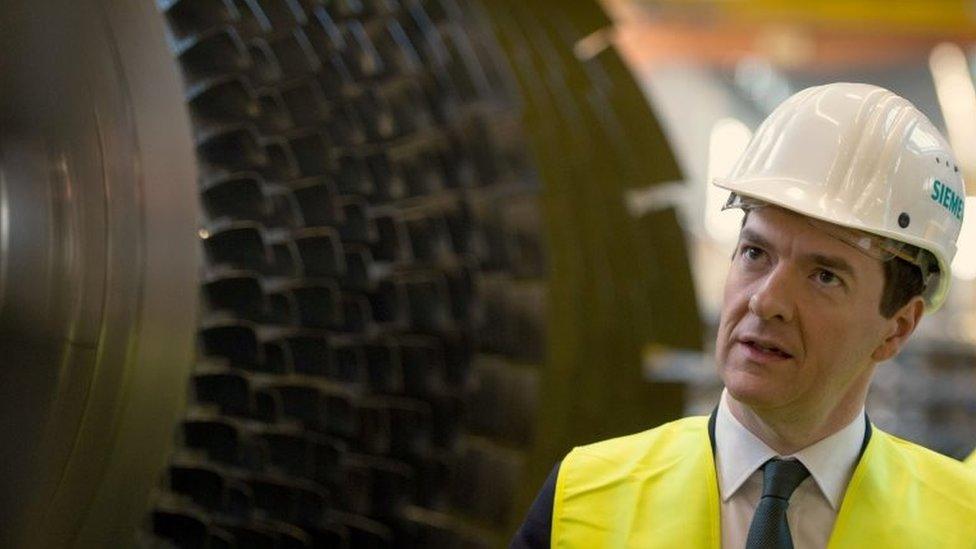
George Osborne visits a Siemens plant
George Osborne is visibly confident, but this will be difficult. He confirmed the changes the government wants to make will require a new EU Treaty.
There is zero chance of that happening before the British vote, and ministers can't answer how or when it might happen.
And for the Chancellor's demands on legal protections for business and the City of London today, it's not clear why other countries will sign up to give equal consideration to Britain's interests, as well as their own - two new challenges on the list, in addition to restricting benefits' migrants, changing the principle of freedom of movement, and getting some powers back for our Parliament.
For Mr Osborne, who twice today refused to rule out becoming the next Conservative leader, his political future depends on steering the government through this vote, which must happen by the end of 2017.
He may well be an optimist, but on this, he needs to be right.

In a speech to the BDI, the Federation of German Industries, he said the EU must accept that the single market has more than one currency and that it "should not discriminate against any business on the basis of the currency of the country in which they reside".
And he added: "We must never let taxpayers in countries that are not in the euro bear the cost for supporting countries in the eurozone."
He said the the new principles "must ensure that as the eurozone chooses to integrate it does so in a way that does not damage the interests of non-euro members".
German Chancellor Angela Merkel said she wanted Britain to remain a member of the EU but "in the end the British have to decide".
"The only promise we can make is this: Wherever their demands are justified, more competitiveness, more effectiveness in the EU, the British demands are our demands too.
"Of course we won't be able to agree on everything, we have always found possibilities for opt-outs, and the Europe of today is not a one-speed Europe.
"For us there are many reasons to keep the UK in the EU and we will do everything we can to make this happen."
'Ever-closer union'
Another crucial demand for the UK is the ability to opt-out of the EU's commitment to "ever-closer union" between member states, which dates back to the 1957 Treaty of Rome, external.
Mr Osborne told German business leaders British people "do not want to be part of an ever-closer union".
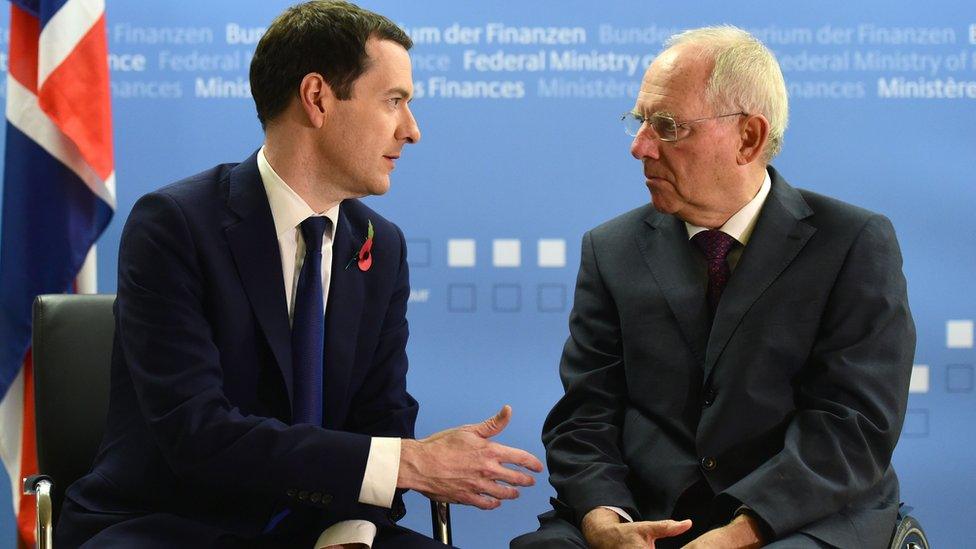
George Osborne met German finance minister Wolfgang Schauble in Berlin
He stressed the British government's desire to stay in a reformed EU but added: "It needs to be a Europe where we are not part of that ever closer union you are more comfortable with.
"In the UK, where this is widely interpreted as a commitment to ever-closer political integration, that concept is now supported by a tiny proportion of voters.
"I believe it is this that is the cause of some of the strains between Britain and our European partners.
"Ever closer union is not right for us any longer."
'Publicity stunt'
Mr Osborne's visit to Germany comes as the UK government "steps up the pace" of renegotiation talks ahead of an in/out referendum promised by the end of 2017.
Prime Minister David Cameron will next week set out Britain's demands in full in a letter to European Council President Donald Tusk.
UKIP leader Nigel Farage accused the chancellor of "sycophancy" towards the EU, saying his address to the BDI "sounded more like a speech from an EU commissioner".
He said Mr Osborne had not mentioned the principle of free movement of people, getting back powers from Brussels and reducing the UK's contributions to the EU.
Labour's shadow chancellor John McDonnell branded Mr Osborne's trip a "meaningless publicity stunt", saying the powers of veto he is demanding already exist.
"These conditions are all straw men that the chancellor wants to then knock down and claim victory to a home audience," he added.
- Published2 November 2015
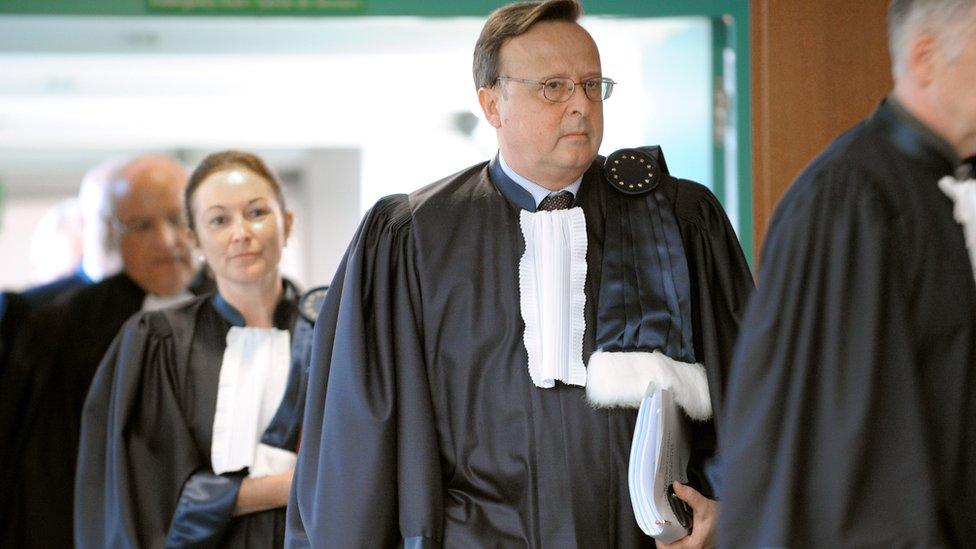
- Published30 December 2020

- Published29 October 2015
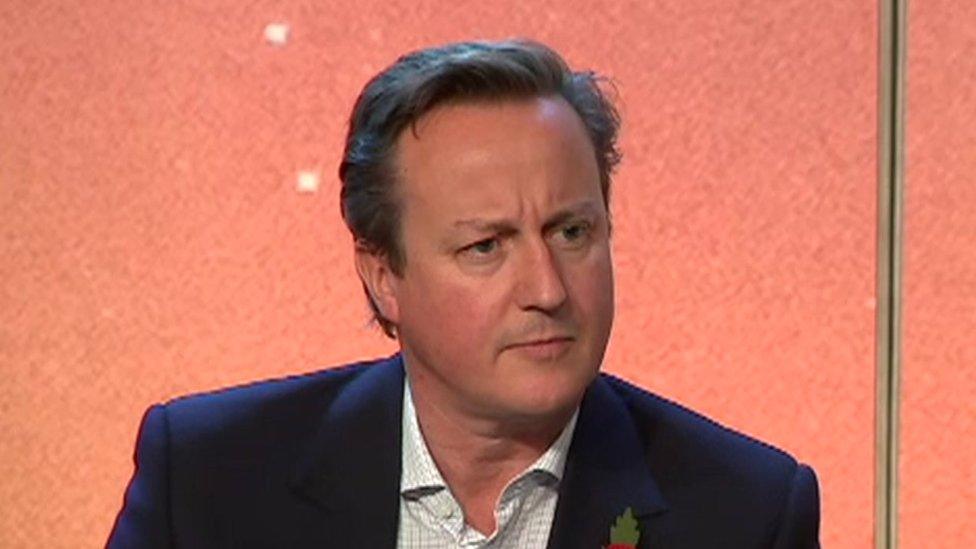
- Published19 May 2015
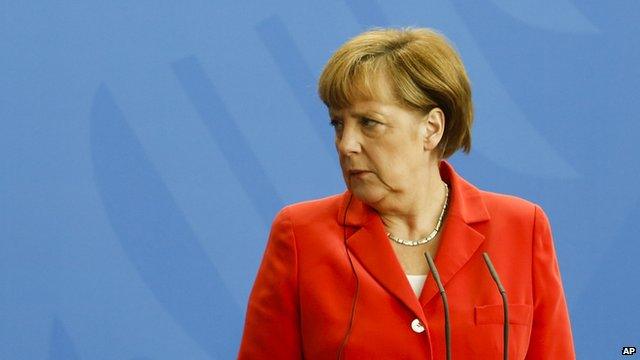
- Published28 October 2015
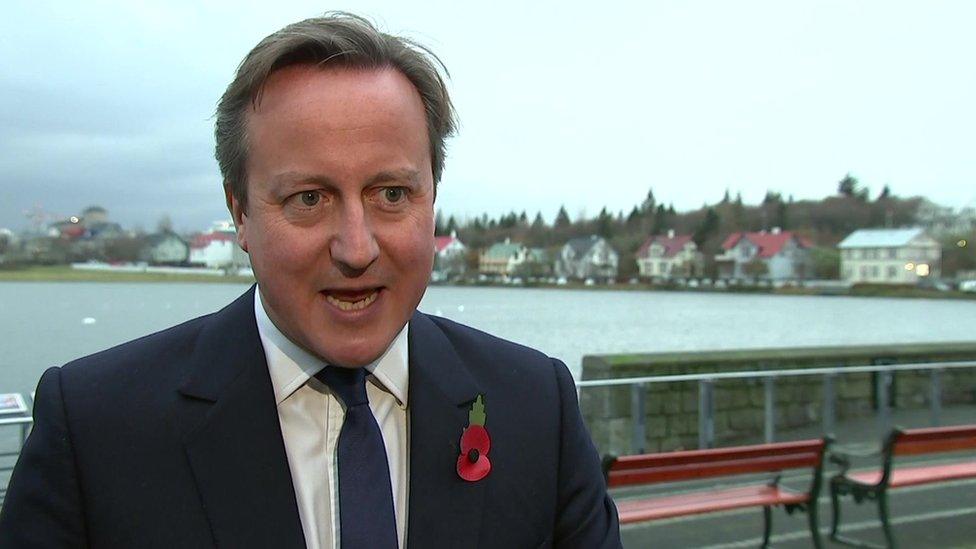
- Published2 September 2015